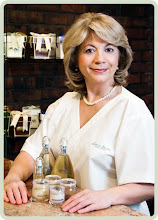The Truth About Vitamin C Creams
One of the biggest breakthroughs in anti-aging skin care was the discovery of the remarkable power of vitamin C to help restore luster and resilience to aging complexions. This super-antioxidant can do just about everything required to repair and protect damaged skin: reduce wrinkling, fight inflammation, stimulate collagen renewal, lighten brown spots, and brighten skin tone. According to some studies, vitamin C may even serve as a mild photoprotectant that helps boost the effectiveness of sunscreens.
No wonder the skin-care market is flooded with vitamin C anti-aging treatments. With so many choices ranging from inexpensive drugstore moisturizers to deluxe serums and night creams that cost hundreds of dollars an ounce, you may be puzzled about the differences between products.
Are all vitamin C treatments the same? Or does the steepest price tag automatically guarantee the best results?As it turns out, the scientific facts behind vitamin C's widespread reputation as a miracle skin-care ingredient are more complicated than they appear at first glance.
Synergy explains why eating oranges will do a much better job of keeping you healthy and youthful-looking than vitamin C tablets. The dosages in synthetic vitamin C supplements are typically far too high for our bodies to use and, in some people. may even cause unpleasant side effects, such as stomach cramps, nausea, and diarrhea.
Vitamin C-rich fruits and vegetables, on the other hand, are designed by nature to replenish depleted skin cells with the perfect balance of ascorbic acid and other complementary nutrients. That’s why plant-derived face creams are such a safe and efficient way of capitalizing on the rejuvenating effects of vitamin C. The best choice? A 100% green vitamin C cream that not only feeds your complexion a healthy blend of phytonutrients, but also provides the added risk protection of natural preservations to retard spoilage.
Labels: anti-aging, anti-inflammatories, antioxidants, plant-derived



0 Comments:
Post a Comment
Subscribe to Post Comments [Atom]
<< Home